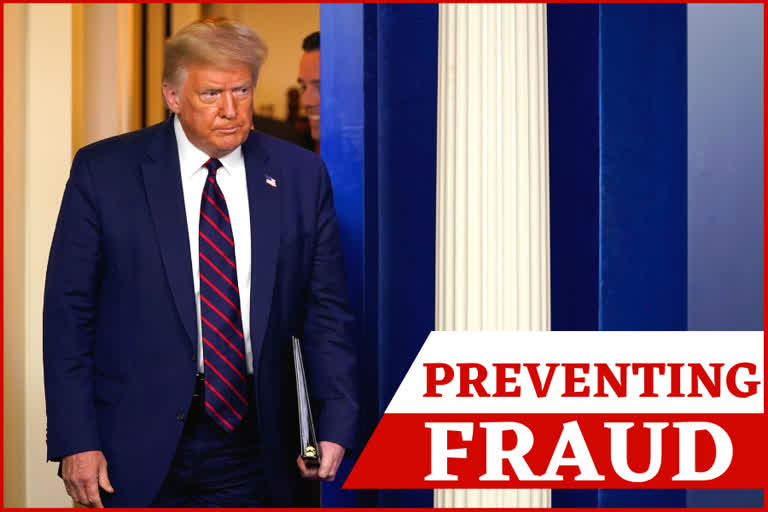Washington:The Trump administration has taken a series of steps to prevent the abuse and fraud in the employment-based visa programmes, including changing the cap selection process for the H-1B, the most sought-after work permit among Indian IT professionals, a top US immigration official has told lawmakers.
The H1B visa is a non-immigrant visa that allows US companies to employ foreign workers in speciality occupations that require theoretical or technical expertise. The technology companies depend on it to hire tens of thousands of employees each year from countries like India and China.
The US Citizenship and Immigration Services (USCIS) has implemented rules, policy memoranda and operational changes that protect the economic interests of US workers and businesses and prevent abuse and fraud in employment-based visa programmes, Joseph Edlow, Deputy Director of Policy, USCIS told lawmakers during a Congressional hearing on Thursday.
Read |Trump considering suspending H1B, other visas: report
Prominent among these include ensuring the fees that certain H-1B petitioners must now pay ultimately to help train US workers, clarifying calculation guidelines for the one-year foreign employment requirement for L-1 petitions to ensure consistent adjudication.
Among other steps are changing the H-1B cap selection process to increase the chances of selection for beneficiaries who have earned a master's degree or higher from a US institution and expanding collaboration with the Department of Justice (DOJ) to better detect and eliminate fraud by employers.
Read |US imposes visa rules for pregnant women on 'birth tourism'
The H-1B visa has an annual numerical limit cap of 65,000 visas each fiscal year as mandated by the Congress. The first 20,000 petitions filed on behalf of beneficiaries with a US master's degree or higher are exempt from the cap.
The Trump administration has also created a USCIS H-1B and H-2B fraud reporting online tip form along with creating an H-1B Employer Data Hub to provide information to the public on employers petitioning for H-1B workers, Edlow said.
The H-2B visa is for short-term seasonal workers while L-1 is for internal company transfers.
The USCIS has issued the first report of its kind estimating the number of H-1B non-immigrants authorised to work in the United States and has instituted electronic filing for multiple forms and, for the first time, using an electronic registration process for H-1B cap selection, he told members of the House Judiciary Subcommittee Hearing Citizenship and Immigration.
Sharvari Dalal-Dheini, Director of Government Relations, American Immigration Lawyers of America, told Congressmen that the USCIS data reveal the percentage of completed cases with a request for evidence (RFEs) increased from 22.3 in FY2015 to 40.2 in FY2019.
"The RFE rate reached 60 percent during the first quarter of FY2019 and was 47.2 percent during the first quarter of FY2020. Frequently, RFEs and NOIDs are issued seeking evidence that has already been provided or that is unnecessary to establish eligibility or contrary to the plain language of the law," she said.
Even when the RFEs and NOIDs ultimately result in approvals, the unnecessary delay caused by their issuance effectively means that USCIS reviews each application or petition twice - once upon initial review and again in response to what is often a needless RFE or NOID - thus leading to twice the number of resources needed to complete the adjudication, she said.
According to Dalal-Dheini when these RFEs and NOIDs result in improper denials, US employers and individuals are forced to turn to the federal courts to seek relief. Frequently, when a legal challenge is brought, the agency is forced to reopen and approve the case because the decision is contrary to law.
Most recently, litigation resulted in USCIS being forced to overturn H-1B policy memoranda that were deemed to contravene the Immigration and Nationality Act. Issuing improper denials, resulting in the time and money spent fending unlawful decisions unnecessarily, drain agency resources that could be better used in eliminating case backlogs.
(PTI)
